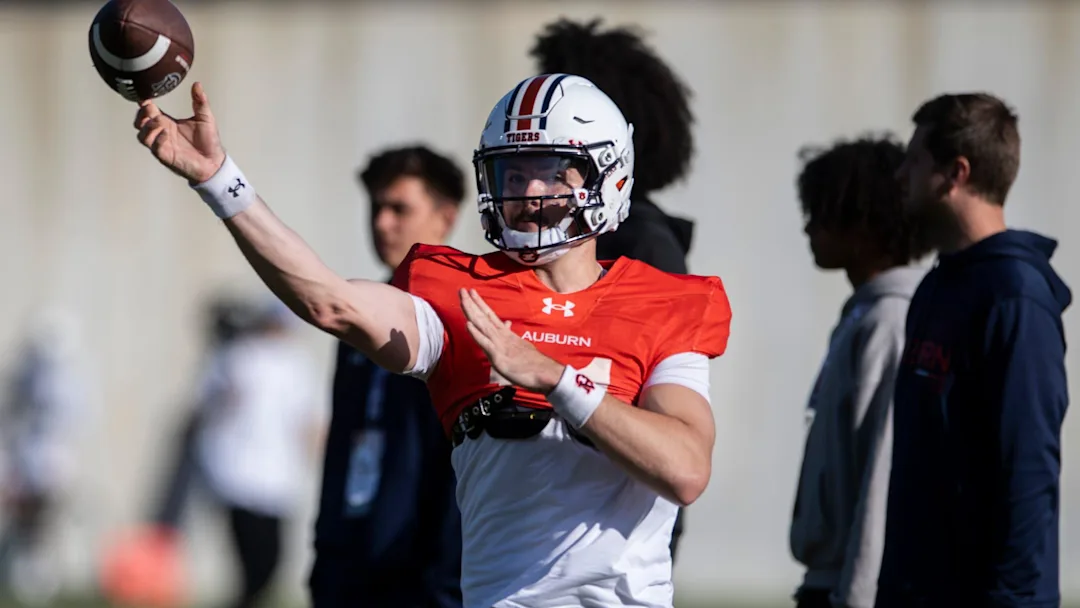The Athletic Gives Auburn Its Flowers: Tigers Named a Top-15 Program of the 21st Century
In the ever-evolving landscape of college athletics, recognition is often fleeting and accolades are difficult to come by. However, Auburn University has once again solidified its place in the annals of college sports history. In a recent comprehensive feature by The Athletic, Auburn was named one of the top 15 athletic programs of the 21st century — a testament to the Tigers’ excellence across multiple sports, iconic moments, and unrelenting competitive spirit.
The list, which considered a variety of criteria including national championships, conference titles, postseason success, program consistency, and cultural relevance, sparked debate among fans and analysts alike. Yet, Auburn’s inclusion inside the top 15 is no surprise to those who have followed the Tigers over the past two decades.
Since the turn of the century, Auburn’s athletic programs have produced unforgettable moments, cultivated Hall-of-Fame caliber talent, and brought national attention to the Plains. Chief among those moments was the magical 2010 football season, when quarterback Cam Newton led the Tigers to a perfect 14–0 record and a BCS National Championship victory over Oregon. Newton’s Heisman-winning campaign remains one of the most dominant individual seasons in college football history.
That season was more than just a championship run—it represented Auburn’s resilience, resourcefulness, and capacity to shine on the biggest stage. Newton’s story, paired with head coach Gene Chizik’s leadership and Gus Malzahn’s offensive genius, elevated the program’s national profile. Auburn football, long considered a proud SEC contender, proved it could rise above the likes of Alabama, LSU, and Florida in a golden era of the conference.
But Auburn’s legacy doesn’t stop at the gridiron.
The transformation of Auburn basketball under head coach Bruce Pearl has been nothing short of remarkable. Prior to his arrival in 2014, Auburn was largely an afterthought in the SEC’s basketball hierarchy. However, Pearl’s magnetic personality, relentless recruiting, and culture-building philosophy flipped the script.
In 2019, the Tigers reached their first-ever Final Four, capturing the hearts of fans nationwide with an electrifying run that included upsets over Kansas, North Carolina, and Kentucky. Though their bid for a national title ended in heartbreak with a controversial loss to Virginia in the semifinal, the run was a defining moment for the program.
Under Pearl, Auburn has remained a consistent threat, regularly ranked in the AP Top 25, making deep SEC Tournament runs, and producing NBA-level talent such as Jabari Smith Jr., Isaac Okoro, and Chuma Okeke. Pearl’s teams play with grit and flair, embodying the same spirit that permeates Auburn athletics across the board.
One of the most compelling reasons The Athletic ranked Auburn so highly was the school’s success across a broad range of sports — not just football and basketball.
Auburn’s swimming and diving program has been a dynasty, particularly in the early 2000s under legendary coach David Marsh. From 2001 to 2009, the Tigers captured eight NCAA Men’s Championships and five Women’s Championships. The program produced Olympians such as Rowdy Gaines and Kirsty Coventry, establishing itself as a global force in aquatic sports.
The baseball and softball teams have also found consistent success. Under coach Butch Thompson, Auburn baseball has made regular NCAA Tournament appearances and returned to the College World Series in 2017 and 2019. Meanwhile, the softball team, led by former coach Clint Myers, reached back-to-back Women’s College World Series in 2015 and 2016, finishing as national runners-up in 2016.
Even in sports like equestrian, gymnastics, and track and field, Auburn has been a perennial powerhouse. The equestrian team has claimed multiple national titles, while the track and field program has produced Olympic medalists and world champions.
While wins and losses matter in the calculus of greatness, culture and identity also play significant roles. Auburn’s cherished “Auburn Family” ethos has helped shape the program’s reputation as a community-driven, values-oriented institution.
That identity—equal parts grit, humility, and ambition—has earned Auburn the respect of fans and media alike. The Athletic emphasized Auburn’s deep-rooted traditions, passionate fan base, and resilience through adversity as intangible qualities that elevate the program beyond its already-impressive trophy count.
From the iconic rolling of Toomer’s Corner to the emotional return of Bo Jackson after the tragic tumor battle of former teammate Philip Lutzenkirchen, Auburn’s moments of unity and compassion often resonate just as strongly as its athletic accomplishments.
It’s also critical to consider the context in which Auburn has achieved its success. The Southeastern Conference is widely regarded as the toughest league in college athletics. To consistently compete — and win — in a conference that boasts national champions nearly every year is no small feat.
Since 2000, Auburn football has played in two national championship games, won multiple SEC West titles, and sent dozens of players to the NFL. In basketball, it’s outpaced traditional powerhouses like Arkansas and Florida in recent years. And across the board, the Tigers have proven that they can not only compete with the nation’s elite, but also outperform them.
Another pillar of Auburn’s top-15 ranking is its track record of developing elite talent. Cam Newton, Charles Barkley, Bo Jackson, Frank Thomas, and Rowdy Gaines are household names — but even in the modern era, the Tigers have produced All-Americans, Olympic medalists, and first-round draft picks across a variety of sports.
In football alone, Auburn has had over 60 players drafted into the NFL since 2000, with several earning Pro Bowl honors and Super Bowl rings. In the NBA, the recent pipeline created under Bruce Pearl continues to blossom, with Auburn alumni playing key roles on playoff-contending teams.
The ability to recruit and develop talent, especially while maintaining NCAA compliance and building a strong locker room culture, is a hallmark of long-term success—and Auburn has mastered that balance.
If the past 25 years have proven anything, it’s that Auburn’s success isn’t a fluke—it’s part of a sustainable, forward-thinking athletic vision. The university continues to invest heavily in facilities, coaching staff, and athlete wellness. Recent upgrades to Jordan-Hare Stadium, the unveiling of the Auburn Football Performance Center, and the expansion of Neville Arena are physical representations of a university determined to remain competitive.
The NIL era has also seen Auburn adapt rapidly. With the support of fan-led collectives and university leadership, Auburn student-athletes are increasingly equipped to leverage their personal brands, compete at the highest level, and remain loyal to the program.
Ultimately, Auburn’s place inside The Athletic’s top 15 is not just about what the school has done — it’s about who Auburn is. It’s a program that wins with integrity, competes with passion, and serves as a symbol of excellence across multiple arenas.
Whether it’s under the bright lights of a national championship game or in the heartfelt moments that define college sports at their best, Auburn has repeatedly shown the world what it means to “believe in Auburn and love it.”
As the Tigers continue to roar into a new era of college athletics, one thing is clear: Auburn has earned its flowers — and then some.
Would you like this tailored to a specific outlet or formatted with subheadings for publication?



